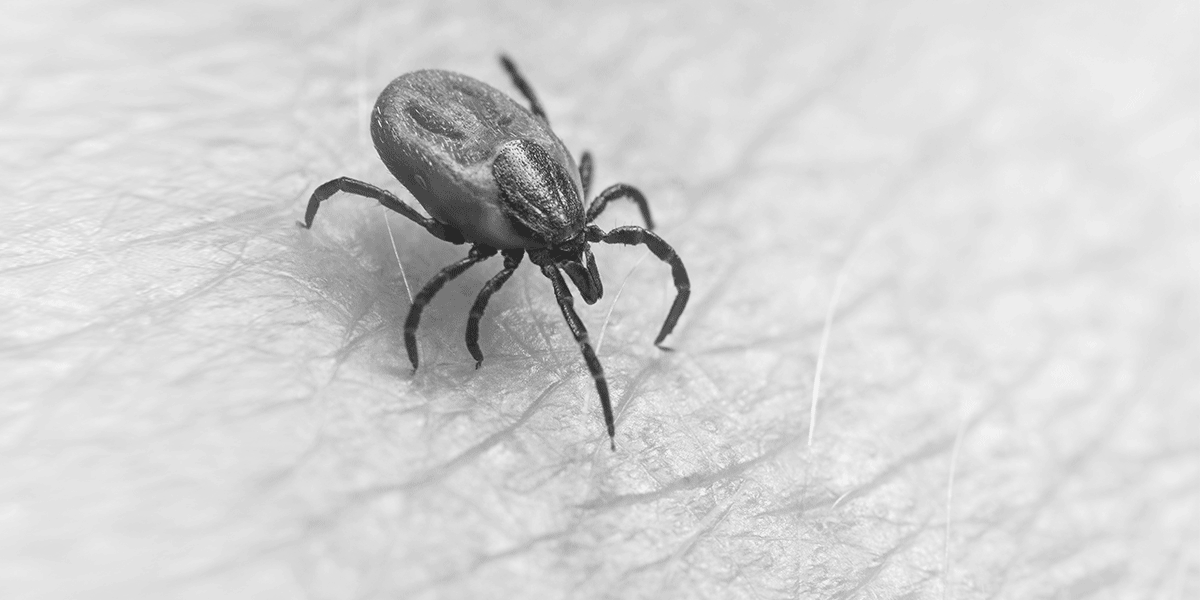How do I find a Lyme-literate doctor?
How can Lyme disease be transmitted?
Can I spread Lyme disease to another person?
Where am I at risk of getting Lyme disease?
When should I consult a physician if I think I have Lyme?
What are the symptoms of Lyme?
How can I prevent getting bitten by a tick?
How do I remove a tick?
Other Tick-Borne Diseases
How do I find a Lyme-literate doctor?
If you feel like you may have contracted Lyme disease or have been misdiagnosed, talk to a Lyme-literate medical professional as soon as possible. The Front Lyme has put together a list of doctors across the nation who are trained to look for symptoms of Lyme and other tick-borne illnesses.
Click below to find a doctor near you and contact them directly for testing and medication options.
How can Lyme disease be transmitted?
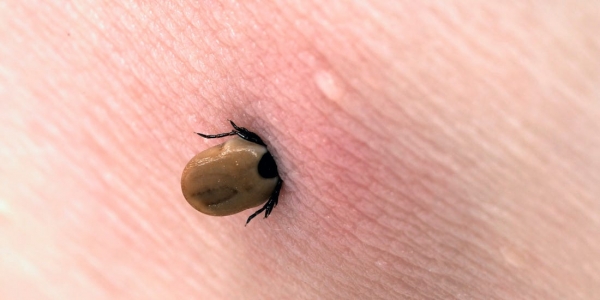
As far as scientists know right now, the only way to get Lyme disease is through direct transmission from a tick bite. Ticks feed on the blood of humans and animals and can transmit diseases during feeding. Since tick bites are small and painless, many people are unaware they have been bitten. The longer a tick is attached to your skin, the more likely it is to have transmitted the disease into your bloodstream.
While your pets may be vulnerable to contracting Lyme, there is no evidence they can spread the disease directly. They may, however, act as physical hosts to ticks. Make sure to check your pets for ticks and wash them regularly.
Can I spread Lyme disease to another person?
There is currently no evidence that Lyme disease can be transmitted through people or their bodily fluids. It is possible for pregnant mothers with untreated Lyme disease to pass the infection to their fetus. While current consensus within the medical community is that Lyme disease can not be passed through blood, the American Red Cross does not presently accept blood donations from patients with Lyme disease.
Where am I at risk of getting Lyme disease?
While ticks tend to live in densely wooded areas, leaf piles, and tall grass, you can get Lyme disease anywhere in the U.S. Ticks are active year-round, but their peak season is from April to September.
When should I consult a physician if I think I have Lyme?
Lyme disease is a clinical diagnosis and can only be determined by a certified health professional. If you have been bitten by a tick recently, talk to your doctor as soon as possible so you have the best chance of receiving effective antibiotic treatments.
What are the symptoms of Lyme?
Lyme disease symptoms can vary on whether you’re suffering from Early-onset or Chronic Lyme. Common symptoms of the two stages of Lyme disease include:
Lyme disease symptoms can vary on whether you’re suffering from Early-onset or Chronic Lyme. Common symptoms of the two stages of Lyme disease include:
Keep in mind you may not experience all of these symptoms. More than 30 percent of patients never develop the bulls-eye rash that doctors look for when diagnosing Lyme disease.
- Joint pain
- Joint swelling
- Muscle aches
- A circular rash similar to a bulls-eye
- Fatigue
- Fever
- Headaches
- Swollen lymph nodes
- Sleep disturbance
- Depression and anxiety
- Nerve pain
- Arthritis
- Pulmonary issues
How can I prevent getting bitten by a tick?
Limiting exposure to ticks is the best way to prevent contracting tick-borne infections. Here are some other ways to limit tick bites:
- Treat your clothing and gear with permethrin (0.5%) and wear EPA-registered insect repellent.
- Wear long-sleeved shirts, long pants tucked into your socks, and closed-toed shoes when out hiking.
- Avoid tall grass or unmarked trails. Tumble dry your clothing on high heat to kill any ticks you may have brought in on your clothing.
- Shower within two hours of coming home. This will wash off unattached ticks while offering you an opportunity to do a thorough tick check on your body.
How do I remove a tick?
If you find a tick attached to your skin, you need to remove it as soon as possible:
1/ Use fine-tipped tweezers to grasp the tick.
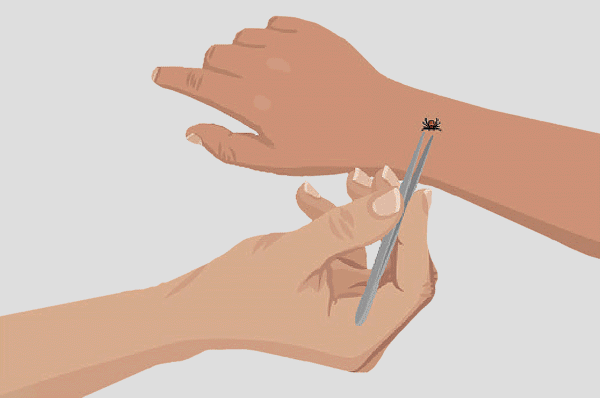
2/ Pull directly upwards with steady and even pressure.
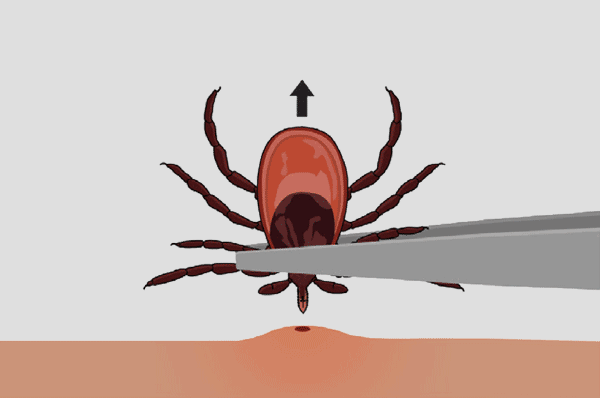
3/ Once the tick is removed, clean the area with rubbing alcohol or other disinfectants.
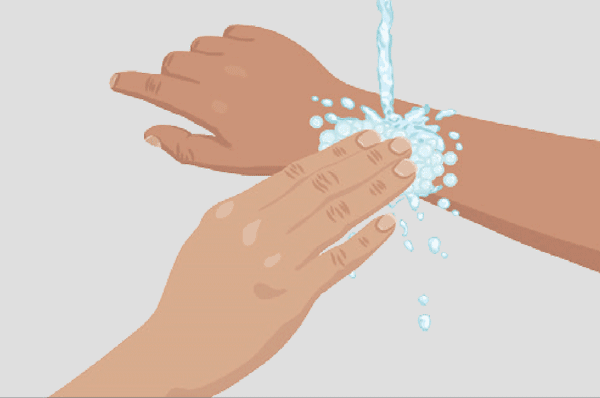
4/ Save the tick in a sealed bag or container in case your doctor recommends having it tested for different diseases.
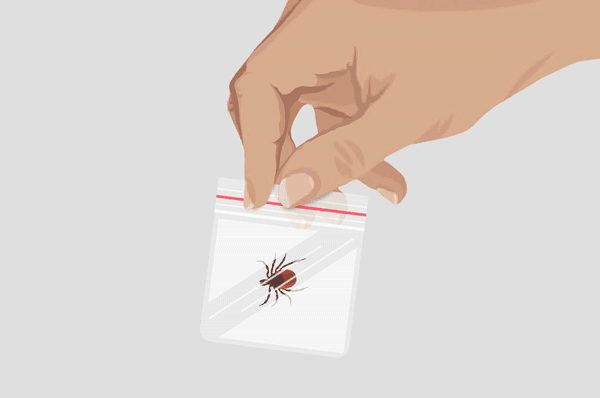
Other Tick-Borne Diseases
Not everyone who gets bitten by a tick contracts Lyme disease. Ticks can carry a variety of bacteria and viruses, including:
If you feel like you may have contracted one of these viruses, contact your Lyme-literate health physician immediately.
- Alpha-gal Allergy
- Babesiosis
- Bartonellosis
- Borrelia Miyamotoi
- Bourbon Virus
- Colorado Tick Fever
- Ehrlichiosis/Anaplasmosis
- Heartland Virus
- Powassan (POW)
- Rickettsia Parkeri Rickettsiosis
- Rickettsia 346D
- Rocky Mountain Spotted Fever
- STARI
- Tick-Borne Relapsing Fever (TBRF)
- Tick Paralysis
- Tularemia
- Q Fever
